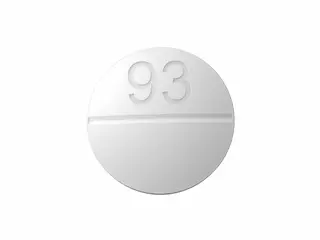Gastroenterology
Explore a wide range of effective gastroenterology products designed to support digestive health, relieve symptoms, and improve gut function. Find trusted medications, supplements, and treatments tailored for conditions like acid reflux, indigestion, IBS, and more, all available for convenient purchase.
Gastroenterology focuses on the digestive system and its disorders. Many people need medication to manage conditions such as acid reflux, irritable bowel syndrome, ulcers, and intestinal infections. Below is a review of popular medications commonly used in this category.
Aciphex (Rabeprazole) is a proton pump inhibitor (PPI). It reduces stomach acid production. Patients use it to treat gastroesophageal reflux disease (GERD), ulcers, and Zollinger-Ellison syndrome. It usually works within a few days. Side effects may include headache, nausea, and diarrhea.
Asacol (Mesalamine) is used for inflammatory bowel diseases like ulcerative colitis. It helps reduce inflammation in the colon. The medication is often taken orally or as a suppository. Common side effects are abdominal pain and headache. It aids in maintaining remission.
Colospa (Mebeverine) is an antispasmodic. It relieves cramps in the intestines. It is widely prescribed for irritable bowel syndrome (IBS). The drug relaxes muscles to ease pain and discomfort. Usually, it is well tolerated, with few side effects such as dry mouth or dizziness.
Imodium (Loperamide) treats diarrhea. It slows intestinal movement to reduce frequency. It is effective for acute and chronic diarrhea, including IBS-related diarrhea. Overuse can cause constipation or bloating. It should not be used if infection causes diarrhea.
Maxolon (Metoclopramide) helps with nausea, vomiting, and delayed stomach emptying. It improves movement in the upper digestive tract. Often prescribed for gastroparesis and reflux. Side effects include drowsiness, restlessness, or fatigue. Long-term use needs caution due to risk of movement disorders.
Motilium (Domperidone) is similar to Maxolon but usually has fewer central nervous system side effects. It promotes gastric motility and relieves nausea. It is used in conditions where stomach emptying is slow. Some users report dry mouth, headache, or abdominal cramps.
Nexium (Esomeprazole) is another proton pump inhibitor. It decreases stomach acid production. It is used for GERD, ulcers, and Zollinger-Ellison syndrome. It is often preferred for its high efficacy and fast action. Possible side effects are headache, abdominal pain, or nausea.
Pentasa (Mesalamine) resembles Asacol but offers a different release mechanism. It targets inflammation throughout the bowel. It is effective in mild to moderate ulcerative colitis. Common side effects include headache, rash, and gastrointestinal discomfort.
Pepcid (Famotidine) belongs to H2 receptor antagonists. It reduces acid produced by the stomach. It is used for heartburn, GERD, and ulcers. It works faster than PPIs but less powerfully. Side effects are rare but may include headache or dizziness.
Prevacid (Lansoprazole) is another PPI that blocks acid secretion. It is prescribed for GERD, ulcers, and gastritis. It helps heal erosions caused by stomach acid. Side effects may involve headache, diarrhea, and abdominal pain.
Prilosec (Omeprazole) is a widely used PPI. It treats conditions related to excess stomach acid. It helps prevent ulcers caused by NSAIDs or Helicobacter pylori infection. Some side effects include headache, nausea, or gas.
Protonix (Pantoprazole) is a proton pump inhibitor used to treat acid-related diseases. It offers effective acid suppression and fast symptom relief. Common side effects include headache, diarrhea, and dizziness. It is often chosen for severe GERD cases.
Reglan (Metoclopramide) is the generic form of Maxolon. It boosts gastrointestinal motility. It is useful in nausea, vomiting, and gastroparesis. Use caution to avoid extrapyramidal symptoms after prolonged use. Common complaints include fatigue and restlessness.
Xifaxan (Rifaximin) is an antibiotic that works in the gut. It treats traveler's diarrhea and irritable bowel syndrome with diarrhea. It also helps reduce inflammation caused by small intestinal bacterial overgrowth. Side effects are usually mild and include nausea and fatigue.
These medications cover a broad spectrum of digestive conditions. Acid reducers like Nexium, Prilosec, and Protonix keep reflux and ulcers in check. Anti-inflammatories such as Asacol and Pentasa help manage colitis. Antispasmodics like Colospa soothe muscle cramps, while Imodium controls diarrhea swiftly. Metoclopramide and Domperidone aid digestion and reduce nausea. Rifaximin targets bacterial infections in the intestines.
Patients should always consult healthcare providers before starting any treatment. Individual needs and medical history affect medication choice. Side effects and interactions must be considered carefully. Proper diagnosis and monitoring improve treatment success in gastroenterology.













